
We must continue to remember so that no one is forgotten, so that no face is forgotten, and so that our experience is not forgotten.

We must continue to remember so that no one is forgotten, so that no face is forgotten, and so that our experience is not forgotten.

Elections are superimposed on social struggles through a process that obscures and disorganizes them, and that recodifies grassroots demands, altering and distorting their language and content.

In their determination and radical nature, contemporary feminisms are initiating radical breaks – in our bodies, on the streets, in bed, and in the household. The slogan of the feminist movement in Argentina sums them up: “We want to change everything!”

The passionate uprising that began in Minneapolis after police murdered George Floyd quickly spread across the country and around the world, is now the biggest upheaval since 1968.

What faces us in the post-COVID-19 world as we struggle to uproot capitalism and its malignant racism, sexism, heterosexism, and environmental destruction, both in theory and in practice?
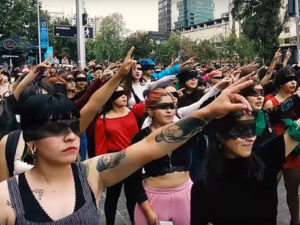
“El violador en tu camino” (“The rapist in your path”), a song written by Lastesis, a feminist theatre group based in the city of Valparaíso, has been sung and danced by women around the world since . . .
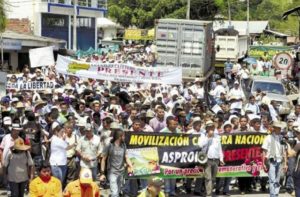
Latin America is experiencing an abrupt change generated by enormous confrontations between the dispossessed and the privileged. This confrontation includes both revolts by the people and reactions by the oppressors.
The October Revolts
The uprising in Chile is the most important event . . .
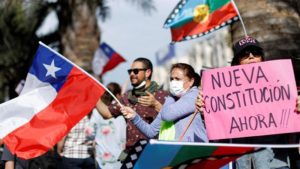
The Set-Up
Last week Piñera’s government went from receiving the lowest public approval of any government in Chile’s modern history to a breath of fresh air with the passing of the controversial “El ACUERDO DE PAZ Y NUEVA CONSTITUCIÓN” . . .
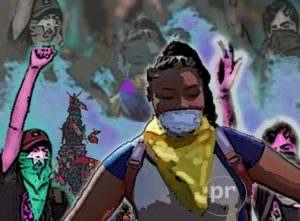
Franck Gaudichaud is a specialist of contemporary Chile, president of the association France Amerique Latine and member of the editorial board of Contretemps. He is a political scientist and teaches Latin American history at the University of Toulouse Jean Jaurès, France. Here he develops several hypothesis bout Chile and the development of the current mobilization which has been ongoing since mid-October.
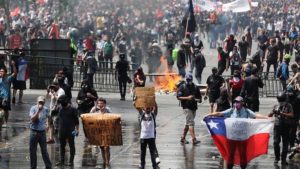
Chile has exploded in social protests for the past several days, initially ignited by an increase in the metro fare. The initial protests developed into a national strike, even though conservative President Sebastián Piñera rescinded the four percent increase . . .